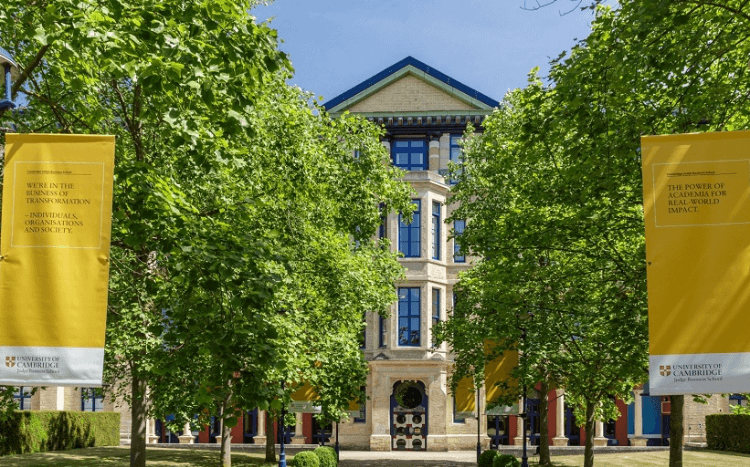And while there is no doubt that the current crisis is quickening the shift to online education after years of sluggish adoption, there is also a sense that we have passed the point of no return in terms of a switch to digital delivery.
“There will be some return to previous practice, but this forced experiment will have a lasting effect,” says Jeremy Hutchison-Krupat, a senior lecturer at Cambridge Judge Business School. “There is a realization that online learning can be enjoyable, convenient and engaging. That doesn’t change when the coronavirus crisis passes.”
Online learning’s watershed moment
It is a watershed moment for online education: the coronavirus pandemic could be a way to prove the merits of digital delivery and win over the skeptics, especially teaching staff, some of whom are now having to lecture online for the first time, or to far larger classes.
“Rarely is everyone so well aligned around the need to make this work,” says Jeremy.
It is also an unexpected opportunity to foster innovation that could transform online teaching in the future, including giving students access to the wider school virtually.
“This situation has brought with it creativity in delivery design. It will have a lasting impact on the way we operate and think about delivery,” says Mark Andrews, digital program learning manager at Cambridge Judge.
Online learning: Drawbacks
So far there have been no signs of creaking online networks: the bigger concern is the quality of home internet connections that could reduce the online experience for students in areas without good coverage. One patchy connection would reduce the quality of discussion for everyone in a live class.
There have been reports of distraught MBA students demanding a refund on their tuition fees. Campus MBA courses typically cost more than online MBA programs and are sold partly on the interaction with students, the faculty and corporate recruiters to develop a valuable network. Few schools would argue that online education can replicate in-person networking yet.
Students are also concerned about their job prospects, given the global economic emergency they will graduate into this summer. University professors are worried about their job security as well.
Education consultant Andrew Crisp says: “It is likely that many students will want to return to face-to-face teaching and are keen to embrace a campus experience. However, schools, having experienced online education, will look to do more in this field and I anticipate there will be greater demand for blended, if not fully online, delivery.”
Future for business schools?
Schools that have already adopted online education have had a head start on the current shift to digital delivery, but there have been warnings that those who cannot fully embrace online education may be tipped over the edge financially.
“There is no doubt the coronavirus outbreak presents unprecedented challenges to the education sector as a whole,” says Kathy Harvey, associate dean of MBA and executive degrees at Saïd Business School, University of Oxford.
With a global recession imminent, some universities have announced cuts to capital spending, staff numbers and working hours to cope. The University of Sydney faces a $200 million funding shortfall because of the coronavirus crisis and is tightening its belt to deal with a drop in tuition fee revenue from overseas students whose global mobility is curbed.
“I suspect that if some schools fail, it won't just be down to being unable to fully embrace online education, but rather they had other underlying issues before the crisis—over-exposure to international students, overspends on capital projects and lack of an up to date portfolio of programs,” says the consultant, Andrew.
Sara Beck, chief operating officer at Saïd Business School, is optimistic. “You need creative and committed staff to deliver high quality online learning,” she says. “We may be working in a different way for the foreseeable future, but we will still be working just as hard.”
Click for live updates on the impact of coronavirus on business schools
RECAPTHA :
e6
64
24
6d








